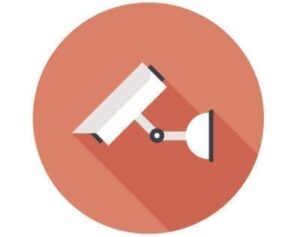The U.S. Department of Homeland Security (DHS) is complaining that COVID-19 is limiting the utility of its surveillance apparatus. The agency takes particular issue with the widespread use of masks to slow the spread of the pandemic, which have made it more difficult to use facial recognition software to identify members of the public.

“We assess face recognition systems used to support security operations in public spaces will be less effective while widespread public use of facemasks, including partial and full face covering, is practiced by the public to limit the spread of Covid-19,” wrote the agency in a bulletin that was sent on May 22. The bulletin would later be included in a batch of government documents that was obtained and released by BlueLeaks.
Of course, the concern about masks is at odds with public health advice during the pandemic. The bulletin itself also seems to engage in a bit of fearmongering, warning recipients that violent extremists could use the masks as cover to carry out large-scale attacks.
However, the bulletin does not have any specific intelligence about such an attack. The Minnesota Fusion Center nevertheless distributed it to law enforcement agencies and government officials on May 26, seemingly in response to the nationwide protests that erupted in the wake of the police killing of George Floyd. The bulletin ultimately comes from the DHS Intelligence Enterprise Counterterrorism Mission Center, with input from Customs and Border Protection, Immigration and Customs Enforcement, and several other agencies.
While several technology providers have updated their facial recognition algorithms to identify people who are wearing masks, privacy advocates warn that those systems still haven’t been proven in the field. Most systems are less accurate when asked to recognize someone in a mask, and false positives are much more likely with untested technology.
“It would be best to have lots of real life examples showing the many ways people wear masks and the different angles they get captured,” explained IPVM analyst Charles Rollet. He later noted that false positives can lead to wrongful arrests if law enforcement tries to act on them.
Since the protests started, major technology companies like Microsoft and IBM have announced that they won’t sell facial recognition technology to law enforcement agencies. DHS, meanwhile, is worried that health-conscious citizens will continue to wear masks once the pandemic has subsided.
Source: The Intercept
–
July 20, 2020 – by Eric Weiss








Follow Us